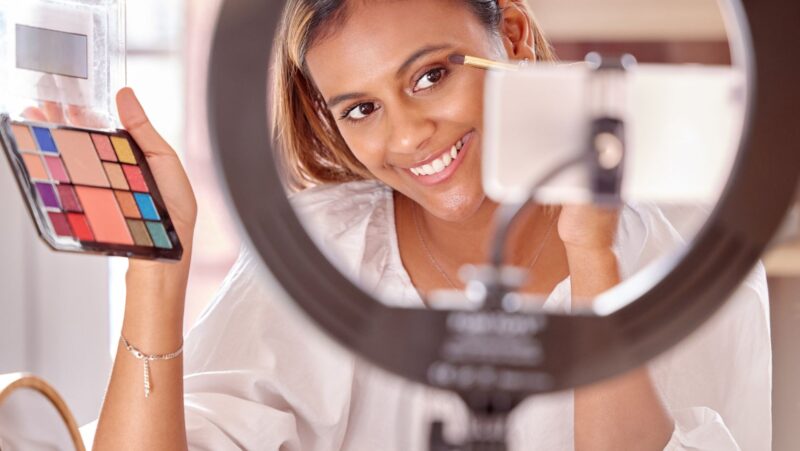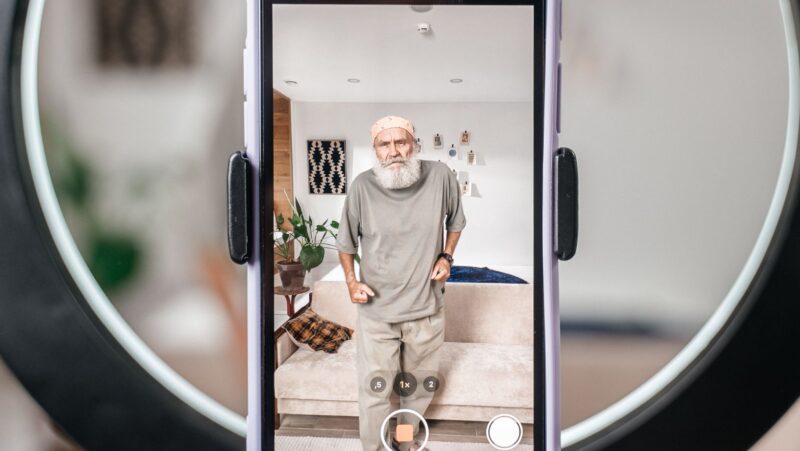Social Media vs Reality
 In a world where social media dominates our screens, the line between the curated perfection of online platforms and the raw authenticity of reality has never been more blurred. From picture-perfect Instagram feeds to meticulously crafted TikTok videos, it’s easy to get lost in the illusion that everyone else’s life is flawless. But what happens when the filters fade, and reality peeks through the cracks?
In a world where social media dominates our screens, the line between the curated perfection of online platforms and the raw authenticity of reality has never been more blurred. From picture-perfect Instagram feeds to meticulously crafted TikTok videos, it’s easy to get lost in the illusion that everyone else’s life is flawless. But what happens when the filters fade, and reality peeks through the cracks?
Social media vs reality is a juxtaposition that challenges our perceptions and invites us to question what is genuine in a digitally enhanced world. As likes and followers become the currency of validation, it’s crucial to navigate the fine line between portraying an idealized version of oneself online and embracing the beauty of imperfection in real life. Join us as we delve into the complexities of social media versus reality and uncover the truths behind the screens.
The Reality Behind Social Media
Exploring the contrast between the curated images on social media and real life reveals an interesting dichotomy. Platforms like Instagram  and TikTok often portray a perfect, stylized version of reality, creating an illusion that can be misleading. Users may find themselves questioning the authenticity of what they see in a world where filters and edits reign supreme.
and TikTok often portray a perfect, stylized version of reality, creating an illusion that can be misleading. Users may find themselves questioning the authenticity of what they see in a world where filters and edits reign supreme.
As social media continues to serve as a yardstick for validation based on likes and followers, striking a balance between the idealized online persona and the acceptance of imperfections becomes crucial. It’s essential for individuals to navigate this digital landscape mindfully, understanding that what is shown on the screen may not always reflect reality.
Impact of Social Media on Perceptions
Social media platforms have a profound impact on shaping individuals’ perceptions of reality. The curated images and content showcased on platforms like Instagram and TikTok often present an idealized version of life, blurring the line between fiction and reality. Users are constantly exposed to a filtered reality that can skew their understanding of what is authentic.
Filtering Reality on Social Media
On social media, individuals have the ability to filter and selectively share moments of their lives, portraying a polished version that may not align with the entirety of their experiences. Filters, editing tools, and carefully crafted posts contribute to a distorted view of reality, leading to comparisons and feelings of inadequacy among users striving to meet unrealistic standards.
Comparison Culture on Social Media
Social media fosters a culture of comparison, where individuals measure their worth based on likes, followers, and the perceived perfection of others’ lives. The constant exposure to curated content fuels insecurities and self-doubt, as users often compare their behind-the-scenes reality to the carefully constructed narratives displayed online. This culture of comparison can have detrimental effects on mental health and self-esteem, highlighting the importance of approaching social media consumption with a critical mindset.
Challenges of Unrealistic Expectations
The discrepancy between social media depictions and actual reality gives rise to numerous challenges, particularly stemming from the prevalence of unrealistic expectations perpetuated by online platforms. Individuals often compare their lives to the edited versions portrayed  on social media, fostering unrealistic standards that can lead to feelings of inadequacy or discontent.
on social media, fostering unrealistic standards that can lead to feelings of inadequacy or discontent.
- Inadequacy fueled by comparisons: Exposure to idealized lifestyles on social media may engender feelings of inadequacy when individuals perceive their own lives as falling short. The constant stream of filtered content that floods social platforms cultivates a culture of comparison, urging users to measure their worth against exaggerated portrayals of others’ lives.
- Unattainable beauty standards: Social media commonly showcases flawless appearances and meticulously curated aesthetics, setting unattainable beauty standards for its users. This emphasis on perfection can instill feelings of self-consciousness and a relentless pursuit of physical ideals that are often unrealistic and unachievable.
- Pressure for constant validation: The quest for validation through likes, comments, and followers on social media can exert significant pressure on individuals, leading to a constant need for external affirmation. This reliance on online validation to boost self-esteem can foster an unhealthy cycle of seeking approval and acceptance from others.
- Impact on mental health: The perpetual exposure to polished and staged content on social media can contribute to feelings of anxiety, inadequacy, and low self-esteem. Comparing one’s reality to the idealized representations seen online can exacerbate insecurities and negatively impact mental well-being over time.